Hello there!
Ned’ here to talk about the first Materia Cup in Europe for 2025, that I happened to Head Judge in France this weekend. I have a lot to talk about, so this piece might be massive. Hopefully it will be useful or maybe entertaining?
Let’s go with some context first. It was a 50-people tournament, Bo3 swiss in 70 minutes for day 1, and top 16 for day 2. Given the store opened at 11AM, we knew it would be a long and exhausting day: 6 rounds of 70 minutes would make us finish around 20:30 if all goes well.
We were 2 judges, my floor judge was Haku, the only french player to have aced the test of the association besides me. (Not counting people such as Romi or Neecow, that worked on creating part of the test). I knew I could trust him to rule, help and explain. He’s also fluent in English and full of energy, so that’s a 5/5 stars review there!
Thankfully, the store took care of everything result-related: collecting results at the end of rounds, pairing, and also time. Whenever they’d hear “your time starts NOW!” they’d launch a 70-minute countdown and put it on the screen.
Two judges for 50 people looks like a correct amount. It is not, in my opinion. The reason is simple: without enough manpower, you will have quality issues. Let’s just talk about slowplay: how can one verify if someone is slowplaying (would need 5 minutes somewhat focused at least to a table) when you have a dozen tables to look at? Don’t tell me 12*5=60mn and 60<70mn or it’s a warning!
But we knew the deal and tackled the event with a plan on how to do it, and we’ll dive right into it
Step 1: Assessing what needs to be done as a judge for a Materia Cup (and how we did it).
Lots of stuff needs to be done. A lot. We need to:
- Verify every decklist is 50 cards / correct if we can
- Do random deckchecks during/between rounds
- Watchout for slowplays
- Check boardstates, games, etc… to try to spot issues players might have missed
- Answer rulings and calls
- Make sure the Streamed Game is not plagued by “mistakes”
There’s obviously some priorities there. Let’s review everything with a bit more details. There are several other things that could be done obviously, but at some point, you have to make choices.
Decklist counting
Decklist counting is really low in my book, but a quick overview could be nice. I managed to give this task to Laurent, our streamer, since at some point he had time with an early finish on stream. He spotted a few things, missed a few, but this was one thing done to ensure some competitive integrity. If you don’t know, decklist counting is basically reviewing all the decklist at the start of the tournament to make sure everybody is playing 50 cards in their main deck. If you did not know, you can have up to eight cards in your Limit Break deck, and a player had seven! I had to check the official rulesheet, to be honest, since I was not sure if it was strictly eight or up to. He thought it was seven, and let’s say playing only seven LB cards is not helpful.
It was clearly the lowest priority, and I know it’s rarely done during FFTCG tournaments. Since Laurent “volunteered” to do some work, I took it as a bonus, knowing a quick check by someone would be better than nothing.
Random Deckchecks
They are important and terribly overlooked. There’s a lot to say about this topic, I’ll keep it short in here though. Without a dedicated team for this, you can’t fully deckcheck someone the way we do during topcut. Also, with our time constraint, there was no way to delay a table for 10 minutes for a check. We decided I’d do random deckchecks just to verify the sleeves between games of a Bo3 (or when it’s over), taking a quick glance at sleeves under all angles + a few things that I won’t detail here. We started by both doing deckchecks, then after round 1, I realised we would probably try to deckcheck people twice, so we opted for only one judge doing them.
The main goal there is not to find issues or anything. We (judges) should always, at every tournament, do random deckchecks to send a message to cheaters: they will get caught. Maybe not today, but at some point, they will. I gave a whopping total of 0 caution and 0 warning out of those deck checks, but we found a few used sleeves that we asked to be replaced.
I knew that the first few rounds would be the best to do so, since games would become longer and longer the more we advance in the rounds, and boy, I was right. In the end I think we had 14 decks checked, which is 28%. That’s a score I’m fine with.
Let’s all say no to slowplay
Slowplay can be the most frustrating thing a player can experience. I went in the tournament with the mindset of “Not under my watch”, but with 2 of us and 50 of them, it was really hard to track what people were doing. But I think everyone played at a correct pace most of the time. I asked someone to play faster once, had to wait 30s to tell him once again before he did something, so I figured if I ever had to tell him to maintain pace of play, that’d be a caution. He ended up earning one for this, but I’m pretty sure he was just thinking and not slowplaying for the sake of it.
Chaotic Boardstate
Checking Boardstate is what we do when we’re not called. Basically, you look at a game, see if everything’s fine, and if there are cards/things that could lead to tricky/messy situations. Then you look at another game, and you keep tabs on table you have to be more careful with, while knowing your list of tables might change. Sometimes we wait to see a play or 2, just to see how some triggers (Atomos for instance) are called. You can easily get a feeling when players won’t miss some triggers or when they will. There are also cards that you know could wreck a game if forgotten by the players, such as Charlotte, Cid Randell or The Emperor. This is, in my opinion, the most important thing, and one of the most complicated thing to do, since you need to assess situation, see where the players are in their turn/stack/etc, and juggle several tables.
“JUDGE!”
Answering calls is basically your standard judge stuff. When you’re answering questions, they’re several things to do and not to do, obviously. Main thing is, make sure everybody at the table understood exactly what is the issue/ruling, make sure they don’t have further questions when you’ve answered, and make sure you don’t give an advantage to a player. This is a whole topic so I won’t discuss coaching vs judging in here.
Streaming
About the stream table, we had a lot to think about, and I tried to stay nearby as much as I could. Obviously, any time I’d turn my back on them, Laurent jumped out of his chair cause they missed something.
Streaming table are always the worst. We all make mistakes as players. That’s why there are judges. Thing is, with dozens of people looking at the game, we’re bound to see everything that was wrong. Due to the camera/angle, it’s also possible to imagine problems. A clean game at the stream table is important, especially if you’re trying to get people into the game. When I was casting Euros 2024, I jumped so many times out of my chair I thought of creating another path for me to get the table quicker.
Hopefully, it went pretty much well, except when I turned my back on the two most seasoned players in the room. More on that later!
This is a lot of things. If you’re wondering “When were the breaks?”, it was the few seconds when we run next to each other to discuss a ruling, a situation, a warning, before running to another place. Pretty sure I lost some weight there.
Step 2: Using the Pedagogy tool we have at our disposal.
We’re not there to punish players. We’re here to give them what they deserve. And players deserve help, advice, proper rulings, competitive integrity and penalties when they do something wrong. Penalties are something players earn, something we give them. But the most important thing is to help everyone improve. Everyday, aiming to be better. For those who come after, if I can say so 🙂
During the whole event, we always had the mindset to help players, but I said at the beginning it’s a grade 2 event, and arguably a grade 1 event due to the World Qualification. We gave around 40 penalties during the tournament (and I’m responsible for most of them). I won’t disclose the details and specifics there, but the most common offense were Missed trigger and Card manipulations. A few were very stupid things that happen when you’re not paying attention, some were really bad. The worst case I had to deal with during day 1 was when I left two seasoned players on stream near end of time, to go explain people they can talk / try to decide who concedes before I give them a double loss, as long as they don’t reveal cards from private zone, only to return to my veterans doing this exact thing.
TIL: Never trust players.
Most of our work though, was helping people navigate the game without feeling bad because they did not know a rule. I had a lot of complicated calls, and I’m pretty sure at somepoint I brainfarted once on something that hopefully did not matter in the end.
As a player, never hesitate to call a judge. Never, ever. A few people said they did not want to bother us. We’re here for this. I’m getting “paid” to be bothered today. Well, with cardboard and free drinks, but still!
This was quite interesting on my end, and I learned a few things that I can share with you to help everyone in future tournaments:
- Always be focused on what happens. There’s nothing more frustrating than being called but being unable to assess the situation because neither player remembers what happened 30s ago.
- Communication is key. When you want to give a message, you have to make sure it is understood. Never hesitate to double check
- Work on your basic English. I know Haku had to help two players of different languages, and neither of them had a sufficient level in english to communicate about the game.
- Be respectful of everyone, even if you feel like your opponent had luck, scammed you, or that “this always happen to [me]”. If you can’t be a decent human being, please stick to your home.
Step 3: Tackling the non-ruling issues
In my opinion, knowing the rules is the easiest part of being a judge. I could even argue (but I won’t, otherwise Yoh will find me and kill me) that you don’t really need to know the comprehensive rules to be a competent judge. Why ? Because there is enough work outside of ruling! I’ll cover a few cases that we had to face during the weekend.
Communication issue
When you want co communicate in FFTCG, there is a lot to account for.
At first, basic english and knowing game terminology is enough to play FFTCG. But at some point, you will run into a quite simple yet complex problem: passing priority.
Let’s assume your opponent is playing Mont Leonis LB, and they choose two forwards of their liking. You knew this was coming, and have a Mist Dragon ready. But you’re close to deck out, while your board is beefy enough so decking out might be your only lose condition. You have to consider whether you play the Mist Dragon or not.
Your opponent put the forwards together next to Mont Leonis. You say okay, because sure, They can select the forward and you think about what you do. And then, they put them on the field and start to do their entry auto-ability. This ends in a Judge Call, and then we’re tasked with the difficult task of knowing the past. I don’t know for you, but I’m not Three-eyed Raven. Every judge has its own sensibility there, and it depends on the situation, but if I can’t get to the bottom of it, I’d say we wait for a correct priority pass for the Non Active player, so he can Mist Dragon if he wants to.
That’s not an ideal situation. As I said earlier, you have to be sure the message you’re delivering is understood. Use long sentences “Ok for those targets, I’m thinking now”, double check “so they enter the field now?” and so on. You will waste a few seconds there, but will not steal 6 month of life expectancy from the judge.
Sleeves and decklists
Once day 1 is finished, it is time to collect decks, and checks correctly with the decklists, verify sleeves one by one, etc… This is a long process, but what’s even worse is that, when something is not correct, you have to investigate a bit more, and maybe issue a penalty. Wrong serial number? That’s a penalty. A few sleeves are easy to find while suffling? You have to investigate more. What cards are they? Are they important in the deck? Does it look like a honest mistake, standard damage done to sleeves or cheating?
You have to find the correct balance to make sure every player gets what he deserved.
For this tournament, I did everything by myself during the night (poor idea). Hopefully two friends help me to sort decks and verify serials and if cards matched.
In the end, I gave a few warnings, especially to those that had something else than their decks in the deckbox (spare sleeves, spare cards, etc), and one gameloss for a player that gave me a 49 cards decklist. He forgot to write one. It could have ended in a withdrawal, but it looked like an honest mistake + I knew he was gonna get dismantled by his opponent really quicky anyway in top 16 (it happened) so I went, as usual, with pedagogy instead of severity.
Also, please don’t change your sleeves between end of day 1 and deck collection by the judge. Let’s leave it at that for now.
Penalty statistics and words about them
I won’t say who earned what kind of penalties, but I can give you a few numbers!
- Cautions: 15
- Gameloss: 1
- Warnings: 23
With 50 players, this is a pretty big number from what I know. As I said, I went with pedagogy. About the type of infractions, I had:
- Card Manipulation (reveal 4 instead of 3, draw 2 instead of 1, etc…): 11
- Maintaining Board State (failed to see a +1k backup and killing forwards that should have survived, for instance) : 4
- Decklist: 6
- Missed Trigger (Lena or Lasswell are mandatory for instance): 11
Almost no one made twice the same mistake, so except for one case, I never had to transform a caution into a warning, or a warning into a gameloss. Multiple warning for different things would get you a gameloss, but people managed to stop before we’d get there. Only one player received multiple penalties about Siren (III), since he did not let enough time for his opponent to react before revealing the card. Ultimately I warned him the next time he does so, it would be a gameloss. I also had to tell a players he had enough cautions/warnings for different offenses that the next one would be a gameloss. Fortunately, the warnings did their job and the tournament ended without me yelling too hard. Except for the streamed game between Aeclis and Feefye of course.
When we were around the end of their third turn, we knew there was no clear winner, so dicussion would ensue to see would concede. I told them i’d give them a minute, but I had to run across the venue to tell less experienced players what would happen on time. So I left them, because they are experienced : current European champion, current top4 at last European Championship. I went to the other players and explained them they’d have a few seconds to convince each other to concede, that technically, double loss is the worst outcome, and that in no way they were allowed to reveal cards from hidden zones (read: hand and deck). I can see some leniancy for hand, even though it is forbidden, but I guess you can talk about what you see. This is a whole topic in itself, and rule is, it’s forbidden.
Anyway. I get back up to see Laurent yelling at Feefye and Aeclis, because they just started looking at deck/hand to determine a winner. Yup. On stream. On my watch. Never trust anyone, you know? I stepped in, gave them both a big warning, and decided to do like I do with my 5 year old son, count to three. Aeclis conceded right away. After the fact, maybe a double loss would have been the correct punishment there (added to the warning).
I decided against it at the time because I was there to teach players, it’s the first big tournament of the season, competitive reflexes can be a bit dull, and when paired against someone you usually train with, you’re used to finish game this way. Also, if it were less experienced players, I would have reminded them, and/or be more forgiving. Since you’re supposed to judge everyone the same way… well, let’s say I won’t make the mistake again.
Conclusion, or how to be a better judge than yesterday
If you read up to this point, congratz!
I already gave a few things for players, here are some for my fellow judges and myself.
Be confident
You can be wrong, you probably will be at some point. I was called at a table to give a ruling, read the card quickly, answered, left the table and then went back with my best “Hold on a second”. Read the card once again, and gave, this time, the correct answer. Even if you’re wrong, be confident at some point, but never hesitate to go the players afterward and say you were wrong. If you have a head judge / someone above you, ask them. Maybe they’ll get it right on their first try!
Never hesitate to give a warning, caution, gameloss or more to anyone. Even though he’s good, Alex Hancox can make mistakes, like putting LB on his main deck. Ryan Chen could do the same. Everybody makes mistakes. So punish everyone the same way.
Preserve your sanity
This is an advice mainly for me. Sometimes, players will take their toll on you. Arguing decision, not being satisfied by a ruling, wanting to know the penalty you gave on the table you just left. Spare yourself, end the discussion right away. Nothing good will probably come out of it, and days are long. If they can’t let it go, I’ll be honest, just threaten them with a warning. Them disturbing you is hindering the progress of the tournament.
Plan ahead but be ready for everything to crash down
As I said earlier, with 6 rounds, I estimated we would have finished around 20:30. We actually did, because we (judges and TOs) are awesome obviously. It could have gone severely wrong, but I knew from the start time was an issue, so we fought to get there as quickly as possible. I did not prepare the result/deck collection/end of day 1 thing, to be honest, so I found myself, hungry as hell, with a reservation in my local japanese restaurant in 5mn, wondering how I’ll get 16 decks, paired with their decklists, in a minimum amount of time. Improvise, adapt, overcome ? I gave Laurent and Haku the decklists, I called player from 1 to 16, they gave us the deckbox and when they’d found the list, they’d fold it in the box, so I just had to put the boxes in a bag.
Never hesitate to ask for help, but stay in control
As you have read, I relied upon Laurent, Haku and the TOs a lot. This way, I managed to do more than what I’ve seen at other tournaments I managed to attend. But at some point, you’re in the venue, it’s hot, it’s loud, and it’s time. You yell it’s time, and you look around. You’re busy in your current game, you need to tell less experienced players how the additional turns works. Hopefully, someone you know, someone you trust about this, is close to the table. It’s a player. Do you ask them to explain addional turns to players while you finish there? This is a tough question. The correct and good answer would be not to ask, and find a way. But remember, if your players takes the initiative to do so and explain, don’t give them a warning, they were trying to help.
Remember your Do and Don’t
Don’t
- “Bad” judges sit on a chair and wait to be called. Then they give the ruling and go back to sitting on a chair, or talking, or trading, or taking pictures. Sure you can take a few pictures of the event, but this is not your job. Be proactive.
- No coaching. Be mindful of what you say, or you could help a player
- Don’t panic. The worst thing, if all goes wrong, is for you to panic. It will be okay. It’s only cardboard, not brain surgery on a newborn baby. Breathe.
Do
- Be proactive. Move around, show every player in the room you are here, watching games.
- Be accessible. Make sure it’s okay to call you, you should never have a player say they were worried they’d bother you calling.
- Have fun. If you hate what you’re doing, trust me, everyone will know. And you won’t do a very good job.
Thanks for reading this whole thing. Next step is probably a specific article on a topic I briefly discussed here. Until next time, take care!



